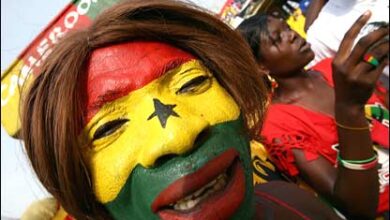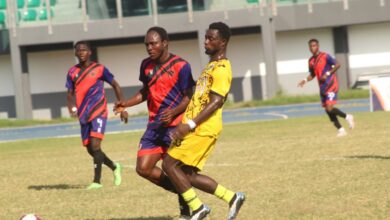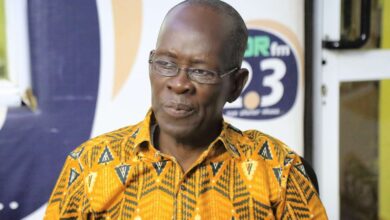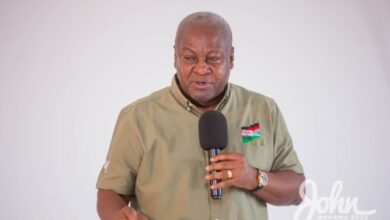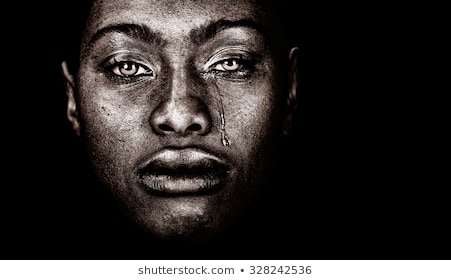

The most cruel and common form of racial discrimination against athletes comes in the form of ‘monkey chants’ and bananas thrown at them to associate them with apes and monkeys.
The death of George Floyd has awakened the world to the canker of racism.
It is sad to know how the young African-American was killed in just eight minutes and forty seconds while in police custody on May 25, 2020, in Minneapolis.
Footage of the videos are very heartbreaking and sportsmen and women all over the world have voiced their displeasure on the issue.
They have been insulted, attacked, objects thrown at them and much more just because they were displaying their talents. But, is it a crime to show the world your talent?
It must be noted that, racism is not just about the colour but may also mean prejudice, discrimination, or antagonism directed against a person or people on the basis of their membership of a particular racial or ethnic group, typically one that is a minority or marginalised.
It can further be described as the belief that different races possess distinct characteristics, abilities, or qualities, especially so as to distinguish them as inferior or superior to one another.
According to research from the University of Central Florida’s Institute for Diversity and Ethics in Sport (TIDES), documented acts of racism in sports in the U.S. sharply decreased from fifty acts in 2018 to just twenty-five in 2019.
However, internationally, there were one hundred and thirty-one occurrences in 2019 compared to one hundred and thirty-seven in 2018.
In 2019, according to TIDES, a large amount of the international documented racist acts occurred during professional soccer games. Of the one hundred and thirty racist acts in sports in 2019, eighty one of them (62%) were related to soccer, the most popular and most played sport in the world.
Most (89%) of these eighty one occurrences took place in Europe, especially in world soccer powerhouse countries including Italy and England, as well as Eastern European nations Bulgaria, Montenegro and Russia.
Most of the discrimination s targeted at African, Muslim and foreign-born players on opposing teams within these countries’ top leagues such as the Serie A in Italy and the Premier League in England.
The most cruel and common form of racial discrimination against athletes comes in the form of ‘monkey chants’ and bananas thrown at them to associate them with apes and monkeys.
Despite some efforts by pressure groups like Black Lives Matter, Kick it Out, Amnesty International, associations and clubs etc, to tackle it, athletes are still subjected to abuse.
A lot of professional athletes have been subjected to abuse in the past years from soccer to athletics.
In football, players on the Brazilian national team, the French national team and as recent as 2019 October, the England national team in a Euro 2020 qualifier game against Bulgaria in Sofia and in Podgorica in Montenegro earlier in March were all subjected to racist taunts.
Kevin Prince Boateng, Kalidou Koulibaly and Sulley Muntari in Italy, Dani Alves, Paul Pogba, Moise Kean, Raheem Sterling, Patrice Evra and Samuel Eto’o have all been victimized.
Take for example, John Barnes, who was a major influence in the Liverpool team in the nineties once had banana thrown at him because he is black.
In a recent statement on racism in society from Paul Pogba, he said: “I’m sad about it, I’m not angry. I’m happy with myself. I have a Chinese friend, an Italian agent, a Brazilian lawyer, a Bolivian wife, I’m French and Guinean. All my life it’s a different culture.”
It’s impressive but not everyone has this biography and that doesn’t prevent him from racist abuse for he has suffered so much racism.
During a Serbian football game in 2016 between Red Star Belgrade and Partizan Belgrade, fans of Partizan hung a racist banner and made monkey noises and gestures towards Brazilian midfielder Everton Luiz. An announcement over the PA system to stop the abuse failed, and players of the opposing team supported the taunts. After the game ended, Luis left the pitch in tears.
In May 2017, American professional baseball team Baltimore Orioles center fielder Adam Jones said that a bag of peanuts was thrown at him during a game at Boston’s Fenway Park. He later called it one of the worst experiences of his twelve year career.
A few weeks later, NBA star LeBron James also fell victim and afterwards he said : “No matter how much money you have, no matter how famous you are, no matter how many people admire you, being black in America is tough. We got a long way to go for us as a society and for us as African-Americans until we feel equal in America.”
A sport dominated by blacks such as cricket has also had its own problems. Controversies involving Dean Jones, Mooen Ali, Geoffrey Boycott, Herbhajan Singh and Andrew Symonds all come to mind.
A sports like Formula One that was said to be racism free has had its controversies. Don’t forget the Fernando Alonso and Luis Hamilton saga in Barcelona.
Since it’s obvious that athletes have been suffering all over the world and have been vilified and lampooned, the question now is how do we solve it and are the authorities doing enough to curb the menace?
George Floyd’s unfortunate death has been the trending topic worldwide for some weeks now and will forever be in the archives, but it didn’t start today and may never end.
The world will always remember June 16,1944, when a 14 year old
George Stinney Jr. became the youngest person to be sentenced to death in the twentieth century in the United States. He was killed in an electric chair with 5,380 volts in his head.
He was accused of killing two white girls, eleven year old Betty, and seven year old Mary. Seventy years later, his innocence was finally proven by a judge in South Carolina. The boy was innocent, someone set it up to blame him for being black.
When athletes like former Olympic champion Linford Christie claims there is institutionalised racism in Britain, when the likes of Yaya Toure, criticise FIFA for not doing enough to solve the problem, then there is a mountain to climb.
We always pretend to listen, we pretend to care when it happens, we pretend to solve it but we are not really interested in solving it and it goes on and on.
Do we talk or comment for the mere sake of talking or we really want to put a stop to it?
This is The Cry of a Black Athlete
Mustapha Hadji

